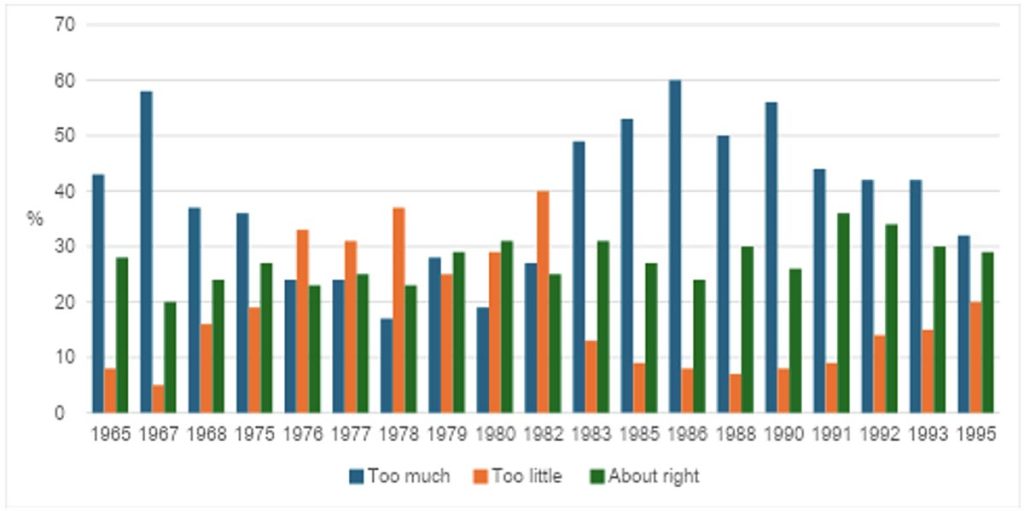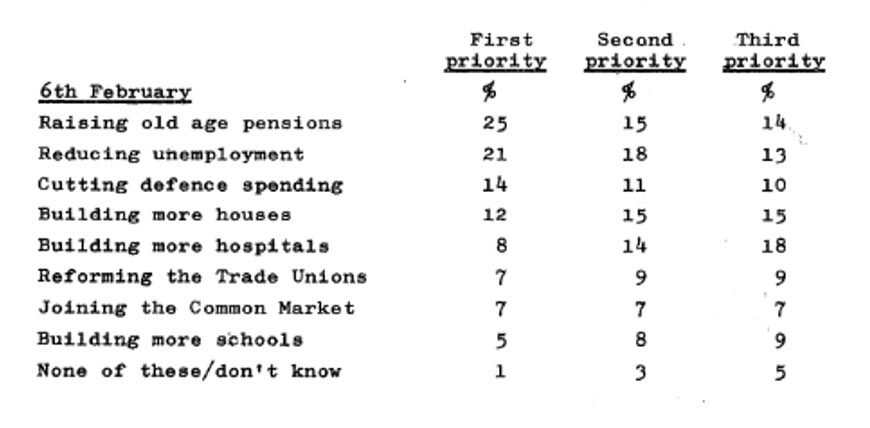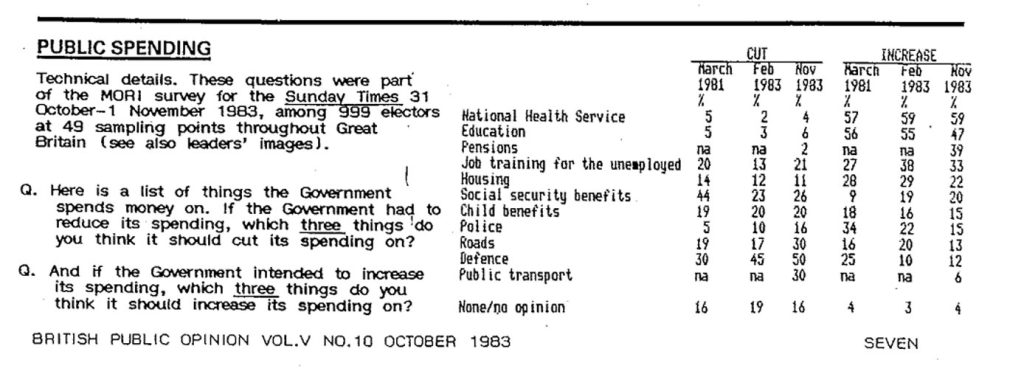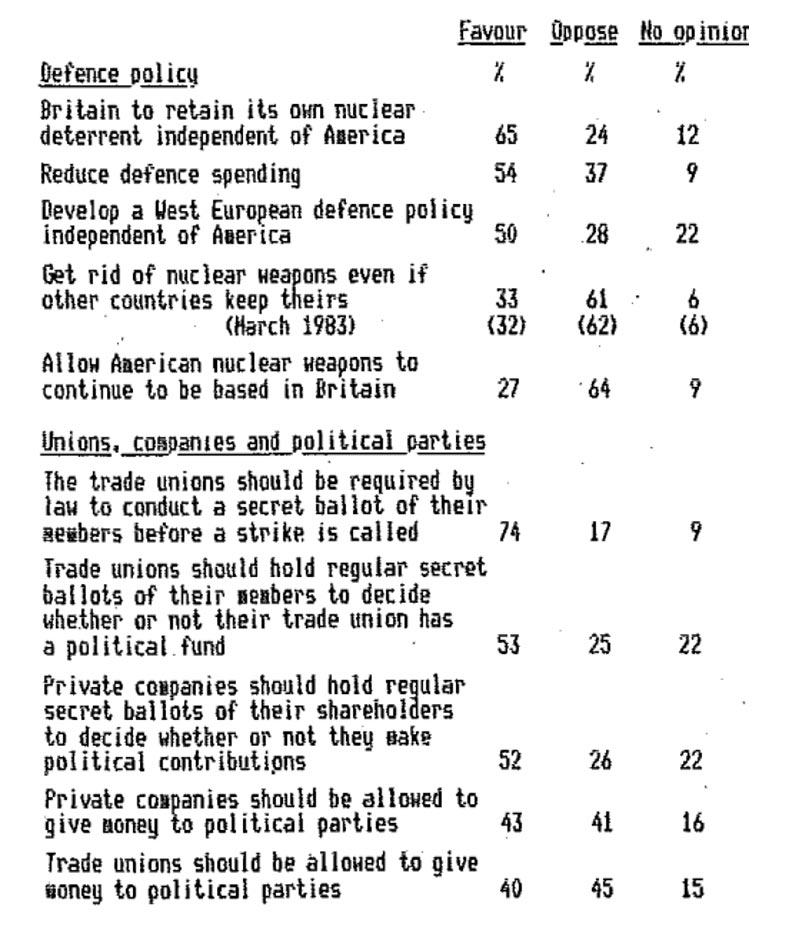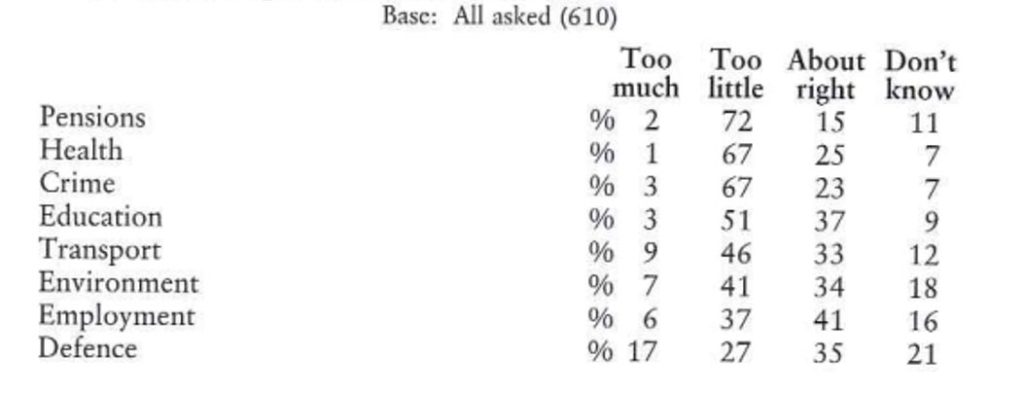Ben Clements is Associate Professor in Politics, in the School of History, Politics and International Relations. University of Leicester. His research interests include British public opinion towards foreign and defence policy in the post-war period. He has published widely on this topic, including British Public Opinion on Foreign and Defence Policy: 1945-2017 (Routledge, 2019)
Prominent recently in British politics has been debate among the parties and in the media over whether defence spending needs to be increased, in the context of evolving threats to national and European security, US criticism of the perceived lack of burden-sharing among its NATO allies, and whether and how defence expenditure should be prioritised given the competing spending claims for health, education and other areas. The Labour government has also recently completed a major strategic defence review.
The most recent British Social Attitudes survey from 2024 found that the changing international landscape is ‘clearly reflected in the attitudes of the British public, who have never been so supportive of military spending and so concerned by security threats represented by individual countries’. YouGov polling has also shown greater support for increasing defence spending than for reducing it or keeping it at the current level. However, when increasing defence expenditure is ‘traded-off’ against cuts to public spending in other areas, support can be less forthcoming, as YouGov polls from January 2025 and June 2025 show.
Polling resources held by the AMSR shed valuable light on public opinion towards the issue of defence spending in the post-war period. Note that polling on defence spending may use a question that only asks about preferences for defence spending, may involve a question that trades-off spending on defence versus another area of expenditure, or may use a set of questions to gauge preferences across a set of policy areas or aims. It’s also important to set public opinion within the context of what the government at the time was actually doing in terms of spending in particular or more general policy on defence. Public preferences overall and the views of party supporters in particular may have been shaped by aspects of domestic politics (such as the degree of party political disagreement or agreement over defence, the holding of a government defence review), the state of the economy and the public finances, and the conditions of international affairs (for example, the state of superpower relations during the Cold War or Britain’s involvement in military action overseas).
Gallup polling
Before looking at specific examples from the AMSR’s archives, post-war Gallup polling regularly asked the following question to the British public: ‘Do you think the government is spending too much, too little or about the right amount on: Armaments and defence.’ Figure 1 shows the percentage breakdown of responses between 1965 and 1995. Support for decreasing defence expenditure declined during the late-1960s (it had peaked at 58% in 1967 and fell dramatically to 37% in 1968) and fell further during the 1970s. Under Conservative governments with a more assertive posture on the world stage, it increased to 28% in 1979, fell to 19% in 1980 and then increased and remained at higher levels during the rest of the decade. In the 1990s, heralding the end of superpower hostilities and the post-Cold War era, support fell from 56% in 1990 to 44% in 1991, declining further to 32% in 1995. The proportions saying too little was being spent on defence was highest between 1976-1982, a period in which Cold War tensions rose and there was disagreement between, and within, NATO countries over issues of European security.
Source: Gallup polling data. Compiled from King and Wybrow (2001: 240). Don’t know responses not shown. Question: ‘Do you think the government is spending too much, too little or about the right amount on: Armaments and defence.’
NOP Polling
NOP polls, undertaken around the time that the Labour government of Harold Wilson undertook major reviews of Britain’s defence spending and commitments, leading to the contraction of Britain’s global (‘East of Suez’) role due to economic constraints, provide some insights into the public’s views on defence spending. A poll from February 1967 asked respondents to select priorities for the government from among a range of policy aims. Reducing spending on defence was ranked third on the ‘first priority’ list, behind raising pensions and reducing unemployment.
Question: ‘Which of these things do you think the Government should be trying hardest to do at the present time? And which next? And which next?”
Source: NOP Bulletin 1967 February – Page 5 – NOP Reports – The AMSR Online Archive
Another poll, conducted in July 1967, showed that a majority (54%) chose defence as the area where the government should reduce the money spent, with much smaller proportions choosing domestic areas of public spending. We can also see that there were differences in preferences between supporters of the political parties, with Conservative voters less likely to opt for defence compared to Labour and Liberal voters. Conservative voters were more willing to select the NHS for spending cuts (24%) than were Labour and Liberal supporters.
Question: ‘The Government are thinking of cutting the amount of money they spend on various services. If they had to cut down on one of these, which do you think they should choose?”
Source: NOP Bulletin 1967 July – Page 5 – NOP Reports – The AMSR Online Archive
An NOP poll from December 1981, in a period of increased superpower tensions, shows there was greater support for more rather than less spending on defence, though the proportion wanting more was about the same as that saying it was the right amount. This poll also shows variation in opinion based on party support, with again Conservative supporters more likely to back increased spending compared to Labour and Alliance supporters. Labour and Alliance voters were more willing to spend less, and their preferences as whole were more split across the three substantive options. More recently, the BSA 2024 survey showed that Conservative and Reform voters were more likely to back higher defence spending than supporters of other parties; Labour voters were more divided in their preferences An Ipsos MORI poll from May 2024, towards the end of Conservative Party’s time in office, also showed that their supporters were more likely to back increased spending on defence, with Labour supporters similarly more split over the issue.
Question: ‘Thinking now of Britain, do you think the Government should spend more or less on defence than they do now, or are they spending the right amount?’
MORI Polling
Polling from MORI also sheds light on public views on spending on defence and other issues, including polls undertaken in the early-1980s during the Thatcher governments. Asked in 1981 and on two occasions in 1983, the public was consistently more likely to select defence as an area where the government should reduce spending, rather than increase expenditure. There was much greater support for increasing spending on the NHS and education (and, in November 1983, on pensions), with very little willingness to reduce expenditure in these areas.
A MORI poll from later in the decade, undertaken in March 1986, shows majority support for decreasing defence spending (54% compared to 37%), within the context of widespread support for retaining the country’s nuclear deterrent, majority opposition to unilateral nuclear disarmament and a negative balance of opinion towards the USA keeping its nuclear weapons in Britain.
Question: ‘I am going to read out a list of policies and I would like you to tell me whether, on balance, you favour or oppose each one.’
Source: https://amsr.contentdm.oclc.org/digital/collection/MORI-BPO/id/634/rec/20
Another polling example, this time from during the period of the New Labour government (in August 2000), again shows how the public has often seen a greater need for increasing spending on different public services than on defence. On this occasion, 27% said expenditure on defence was inadequate (too little) under the government’s spending plans (35% said about right and 17% too much), while a larger proportion thought this was the case for every other policy area asked about (highest at 72% for pensions).
Question: ‘The Government announced this week that it will be spending an additional £43 billion on public services. I am going to read out sone different areas of Government spending and I would like you to tell whether you think the Government plans to spend too much, too little, or about the right amount on each area.’
Source: https://amsr.contentdm.oclc.org/digital/collection/MORI-BPO/id/1765/rec/12
These are some of the polls that the AMSR holds on public opinion towards defence spending and related issues. Further examples can be located by searching the individual collections, in particular: MORI British Public Opinion
MORI Reports
Opinion Poll Reports
NOP Reports
Up-to-date polling on the public’s preferences for government spending, including for defence, is available from YouGov’s website:
https://yougov.co.uk/topics/society/trackers/what-sector-should-the-uk-government-spend-more-on
https://yougov.co.uk/topics/society/trackers/what-sector-is-the-uk-government-spending-too-much-on
The BSA surveys offer a long-term perspective, from the early-1980s, on the public’s views on spending on defence (and other areas). In particular, see Table 1 in this report: https://natcen.ac.uk/publications/bsa-42-security-threats-and-military-spending
Dr Ben Clements
University of Leicester


